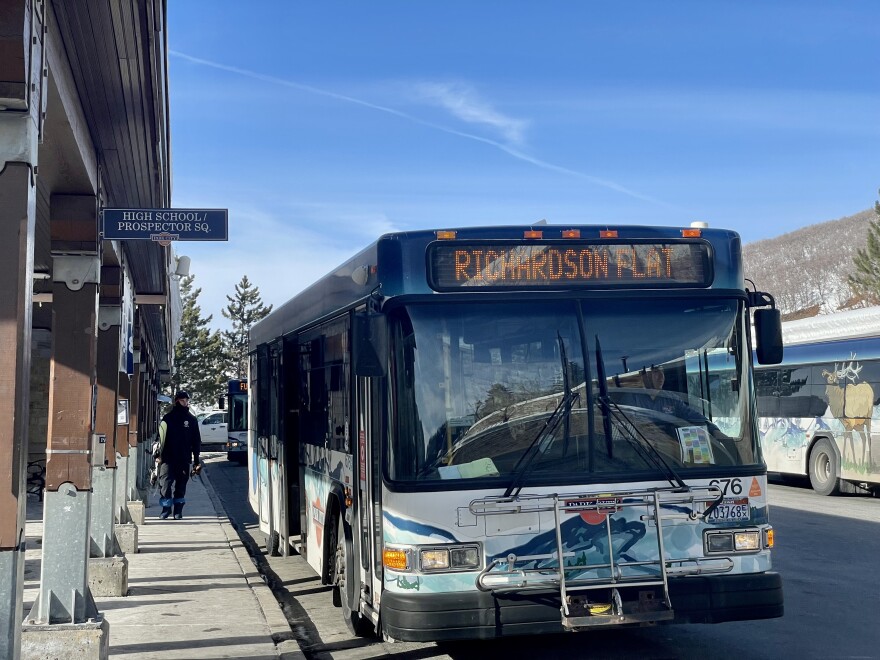Lea este artículo en español aquí.
Several High Valley Transit and Park City Transit bus drivers are scrambling to change their immigration status or find another job this month after the federal rule change.
The Trump administration made commercial driver’s licenses off-limits for certain people without permanent residency in the United States in September.
The temporary change applies to drivers who are Canadian citizens, Mexican citizens, asylees (or asylum seekers), refugees or Deferred Action for Childhood Arrivals recipients. Drivers with permanent residency are not affected.
Trucking, bus driving and other big rig jobs require CDLs. That means Park City-area transit agencies are having to reshuffle staff.
“We don't anticipate impact to our service. We're more concerned about the impact to these individuals,” High Valley Transit COO Brad Herkimer told KPCW. “They've been outstanding employees, and we will do everything we can to make sure that they continue with meaningful employment.”
Herkimer said eight of his agency’s drivers are affected, and only three will be able to change their immigration status in time to keep their jobs.
Park City Transit is aware of the new CDL restrictions but declined to say how many of its drivers are affected.
“We are working directly with any affected employees to ensure continuity of operations and prevent any service interruptions or delays,” city spokesperson Clayton Scrivner said in a statement.
After the Sept. 26 rule change, the Utah Driver License Division sent letters to those who no longer qualify for what’s called a “non-domiciled CDL.”
According to a copy sent in October and obtained by KPCW, non-residents must have a passport and obtain either an H-2A, H-2B or E-2 visa within 30 days of receiving the letter to retain their CDL. Or they could pursue a green card.
Otherwise, they’ll only be allowed a regular driver’s license.
Herkimer said High Valley Transit is coordinating with the company Via, which runs High Valley’s microtransit vans.
Those no longer eligible to drive buses can join the micro fleet, or drive smaller buses, and existing van drivers pursuing CDLs can restaff the fixed routes.
“All eight of these operators have been model employees. They show up on time, they work hard. They have great customer service. They've had zero safety incidents,” Herkimer said. “[They] have just been great contributors to our service, and as a result, contributing to the overall good of our community in Park City.”
The Trump administration adopted the new CDL rules for non-residents as an emergency measure, meaning it bypassed the regular public comment period.
It cited five fatal accidents involving non-domiciled CDL holders this year.
The administration also claims there is “systemic non-compliance” with licensing rules across California, Colorado, Pennsylvania, South Dakota, Texas and Washington as reasons for the change. Regulators have ordered California to suspend issuing non-domiciled CDLs.
The Federal Motor Carrier Safety Administration estimates there are 200,000 non-domiciled CDL holders in the U.S. and that 194,000 — 97% — will need to “exit the market.”
The agency says there are 3.8 million total interstate CDLs, the specific type of license for trucking. Based on that, the FMCSA is not expecting a major economic hit from the new policy, but it did not look at bus drivers specifically.
Before the interim regulation is official, the government is accepting public comment until midnight EST Nov. 28. Click here to read more and give input.


